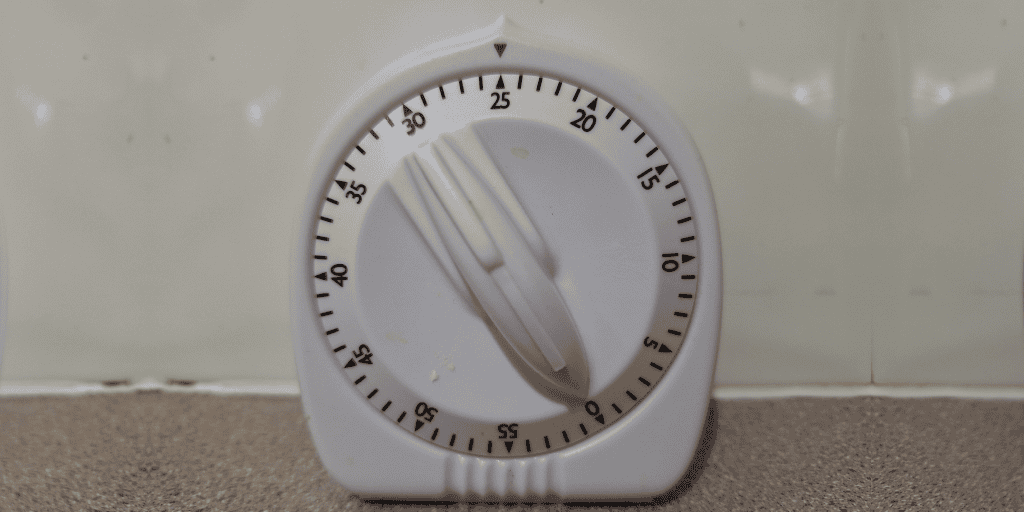Replacing Bad Study Habits with Effective Learning Techniques
Breaking a bad habit is easier if you can replace it with a good habit. Train your brain to remember the good habit whenever the bad habit tempts you.

Many of our routine, day-to-day tasks are habits. We go through the day without needing to think too much about these. Walking, dressing, washing, doing our hair, checking the weather, and eating generally take minimal effort, which allows our brain to focus on less routine tasks.
What is your worst study habit? Last-minute cramming? Do you write long lists but never get around to actually knuckle down? Or do you sit down to study, then spend the next hour scrolling through social media? Do you read the material or watch a video, then discover you can’t remember anything? Let’s explore how to replace these bad habits with good study habits that will help you ace that course!
Bad Habit: Procrastination
How often do we plan to study, but the day slips by without any meaningful work being done? This is classic procrastination, and like so many other people, I am definitely guilty. I’ve listed it first, because it can lead to other issues including cramming, multitasking, lack of sleep, and neglect of self-care.
Good Habit: Pomodoro Technique
In the 1980s, an Italian named Francesco Cirillo invented a technique to improve productivity. Students, musicians, writers and people in many other fields have since found they can achieve more and get better results in less overall time. You may have heard of it: the Pomodoro Technique.

The premise is simple. You set a timer for 25 minutes and spend the time focusing on your study. After the timer pings, have a 5-minute break, then come back to your study for another 25 minutes. After two more sessions, you’ve managed two hours of solid study so feel free to take a longer break.
While the premise is simple, you need to be aware of some details to make the most of the Pomodoro Technique.
- Set up a study schedule and stick to it. Even if you can’t manage long sessions, you can fit in half an hour, right? Don’t put it off and set that timer. Make a habit of regular study to replace the “I’ll do it later” habit
- Ban distractions. Turn off notifications from apps. Even better, if you’re not using your phone to watch videos, turn your phone off or leave it in another room
- Focus on your coursework. I can’t emphasize this enough! If your brain wants to remind you of other tasks, make a quick note for after your study session. Every time an unrelated thought pops into your mind, bring your attention back to your course materials and what you are learning. Train your brain to think solely about the coursework whenever the Pomodoro is running
- Use your short breaks to move around for the best benefit. Get your blood flowing and increase your heart rate for optimal brain function. Studies also indicate a link between increased blood flow and lowered incidence of dementia and other health issues in the future.
Replace that bad procrastination habit with a good Pomodoro habit. By studying consistently, you’ll avoid cramming, because you’ve made a start on the course material. By eliminating distractions, you’ll make the most of your study time. By focusing on your course, you’ll remember it better and ultimately, you’ll achieve more in less time. For more ideas on focusing while studying, see Can’t Focus While Studying Online? These 32 Hacks Will Change the Way You Learn.
Bad Habit: Multitasking
Do you study in front of the television or at the kitchen table with the family underfoot? Studying with distractions can lead to a lack of focus, which means you’ll take longer to learn and finish study tasks, and have more trouble recalling the material at exam time.
Good Habit: Dedicated Study Space

Setting up a peaceful study area helps you focus. Avoid the household bustle and shut the door if possible. Getting into the habit of studying in a particular place also helps your brain go into study mode when you sit down with your books or course videos. You might study at a desk or table in your bedroom but please don’t study in bed – our brains have a habit of associating bed with relaxation, not concentration.
While some people prefer to study without any background noise (maybe with noise-canceling headphones), others find quiet music can help them concentrate. Music without words, particularly classical music, appears to be the best.
Bad Habit: Cramming
Pulling an all-nighter before exams is common, but let’s be honest: it’s a destructive and unsustainable habit. Apart from sitting an exam with a tired brain, as the subjects get more complex, all-nighters are not enough to learn the necessary material properly if you don’t already have a solid grasp.
Good Habit: Spaced Repetition
Get into the habit of revisiting the coursework regularly right from the start. This is called Spaced Repetition and means that you go over the topics covered on a daily basis at first, then skip a day, then come back to it again a few days later. Keep reviewing and building on the work as you continue the course, so the details really cement into your brain. Make flashcards (paper or with an app) and get into the habit of using them frequently. Improving Your Study Techniques explains this well.
Bad Habit: Passive Reading
Many students have the habit of reading and often underlining or highlighting their textbooks or lecture transcripts. They’ll do this two or three times and think they know the material, but when it comes to exam time, they can’t remember it. Why is this so? It happens because reading and highlighting are passive techniques. Your brain learns more easily when it’s engaged in the process.
Good Habit: Active Learning
Get into the habit of taking notes as you read. Don’t just copy and paste, but handwrite or type key words and phrases and think about them as you do so. Writing fewer notes that force your brain to think about how they connect helps you remember the points more easily. And rather than just rewriting the transcript or textbook, there are several techniques for taking structured notes.
Another active learning technique is to teach others. If a friend isn’t available, talk to a mirror, a pet, or a teddy bear. You’ll quickly discover your weaknesses when trying to explain the concepts out loud.
Bad Habit: Lack of Focus
Do you sit there with your books or videos and realize that you’re daydreaming? Planning your next meal or weekend activities? Thinking about a recent quarrel? Not focusing on your studies is a common habit.
Good Habit: Pomodoro Technique
Yes, I mentioned the Pomodoro Technique above, but it’s worth mentioning again. It’s a key learning technique to help you focus. Use the Pomodoro deliberately. When you go into a study session with the knowledge that you only have to focus for 25 minutes, it’s easier to do. Replace your habit of not focusing with the habit of focusing and discover how much more quickly you grasp material that sticks.
I watch many course videos at 1.25 speed. I’ve found that I need to concentrate harder to catch the words, whereas my brain wanders when watching a slower video. Try changing the speed but remember you may need to slow down the video, particularly if the instructor is a fast talker or has a strong foreign accent.
Maybe you’re finding it hard to concentrate because the study materials are boring. Look for diverse materials presented in different ways to keep your brain engaged.
Bad Habit: Neglecting Self-Care
It’s easy to fall into bad self-care habits while studying. Snacking on junk food and caffeinated drinks, late nights, and long continuous hours of sitting can reduce your learning speed and capacity.

Good Habit: Remember Nutrition, Rest, and Exercise
Set up habits of eating nutritious food, a realistic bedtime to rest and ready yourself for the next day, and regular exercise to improve blood flow. Your brain will thank you!
If you snack while studying, make it healthy: vegetable sticks, fruit, nuts, seeds, and water or unsweetened drinks. Too much sugar, caffeine, or alcohol can affect your concentration or disturb your sleep.
Trying to study and do homework and exams while tired is difficult. Make it a habit to set aside sufficient rest time each night, or take a daytime nap. Following your study schedule without procrastinating helps you complete your study sessions within your time limits.
Exercise can help the blood flow. Every half hour or so (when the Pomodoro rings), take a break and stand up. Move around. Do some jumping jacks, march on the spot, dance around the room or take a quick walk. The evidence is building: increasing the heart rate improves your brain’s capacity to learn. It improves your cardiovascular health and reduces your risk of diseases including diabetes and dementia, and helps your mood. Learning How to Learn co-instructor Terrence Sejnowski has a daily exercise habit that helps him think and learn better. Terry mentions his exercise habit on page 131 of Learning How to Learn: How to Succeed in School Without Spending All Your Time Studying; A Guide for Kids and Teens by Barbara Oakley and Terrence Sejnowski.
I have now got into the habit of pacing around the house regularly while working at my computer. Those frequent short breaks help me concentrate better when I sit back down again.
Replace Bad Habits with Good Habits
Breaking a bad habit is more effective if you can replace it with a good habit. Simply telling yourself, “I will not do this any more,” can take a lot of willpower to stop the habit. But if you say, “Instead of this, I will do that,” and training your brain to think of that every time you are tempted to do this can be more effective.
Start every day with thinking of the good habits you want to establish. Remember to focus whenever you’re studying and you will discover that as the days go by, the process gets easier as your good habits become more entrenched.





